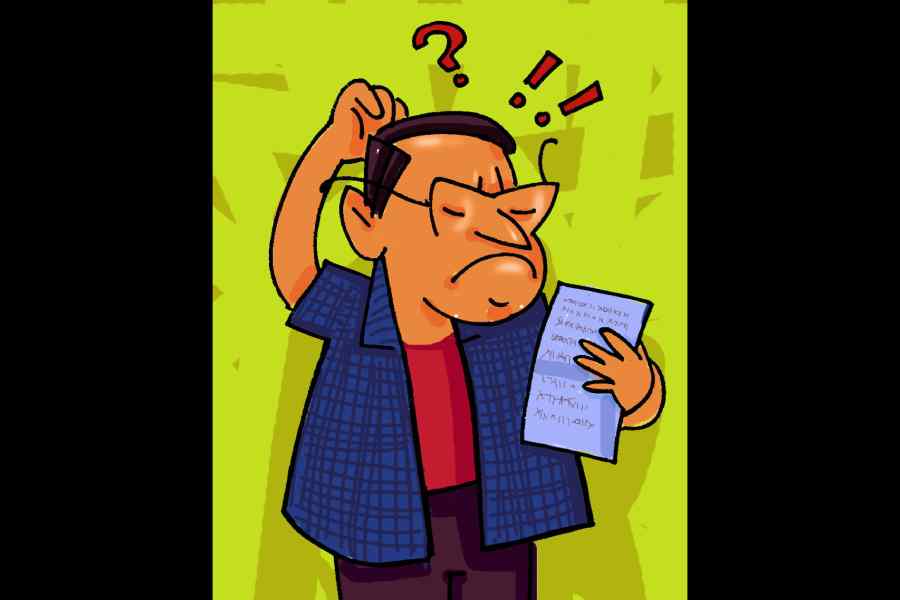“Bibbidi-Bobbidi-Boo,” said Cinderella’s fairy godmother, and Cinderella was dressed and ready for the prince’s ball with a pumpkin-turned-coach to take her to it. It is a magic spell, impenetrable yet authoritative in changing reality. Legal language, highly specialised and almost as impenetrable, seems to aspire to this ritualistic, spell-like quality to establish its authority. It stands out in human communication by refusing to be intelligible, which is exactly the opposite of what communication is supposed to be. A graduate in law and two psycholinguists took four years and a number of experiments with non-lawyers to come to the conclusion that the aspiration to power gives legalese its uniquely convoluted quality. Structures are inserted within structures; long definitions are put into the middle of sentences in what experts call “centre-embedding”. This also happens when earlier drafts are filled out with additional information. None of these processes is like ordinary sentence formation; hence even lawyers apparently find legalese unwieldy. Cinderella’s fairy godmother had an advantage: no one sought the meaning of her words. But law-writing is afflicted with the necessity of being ultimately understood, or how would the world change?
The researchers concluded that laws can be written in a simpler manner, but what is to be done with medical jargon? Although medical professionals believe that they should not use specialised words and phrases with patients, the practice is alive and kicking. Patients may not catch on that in medicine ‘positive’ means bad in, say, a biopsy report and ‘negative’ means good. A study by nine researchers published in 2022 used tests on 215 volunteers to conclude that medical jargon often confuses patients. ‘To have nothing by mouth’ is rather more accessible than ‘NPO’, for instance. In the same way, it would, perhaps, be kinder to say straightaway, that someone’s tumour has grown rather than saying it is ‘progressing’. Why call a radiography report ‘impressive’ instead of bad when ‘unremarkable’ radiography means, as a child can guess, that the report is good?
But an academic would, perhaps, find this issue problematised. Or not, as the academic’s specialised language is the most impenetrable of all. This lofty being may wish to circumvent the paradigm, since the dialectic that is manifest is anathema. The language is truly magical; it is both mesmerising and incomprehensible. It forms a beautifully resonant screen that carefully preserves the sacredness of meaning from the profane intrusions of the uninitiated. It would seem that schoolmarmish admonitions to write lucidly in short sentences have lost their contemporaneity, since they do not fit the multi-faceted zeitgeist. No doubt there are unfashionably lucid ways of putting this, but that would not problematise the issue satisfactorily. But the built-in thesaurus of a device is rather unkind. About ‘problematise’, it says, “The blame for this awful neologism lies with academia, where the word serves no apparent purpose except to demonstrate one’s mastery of obscurantist jargon…” Why blame academia for one of the flowers of language?











